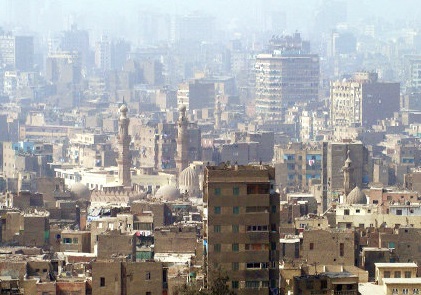
info.afrindex.com
China-Africa Trade Information Service

info.afrindex.com
China-Africa Trade Information Service

Image from How We Made it in Africa
According to the United Nations, Cairo in Egypt, Kinshasa in the Democratic Republic of the Congo and Lagos in Nigeria are already megacities, while Luanda in Angola, Dar es Salaam in Tanzania and Johannesburg in South Africa will attain the status in 2030.
Abidjan in Côte d'Ivoire and Nairobi in Kenya will surpass the 10 million threshold by 2040. And by 2050 Ouagadougou in Burkina Faso, Addis Ababa in Ethiopia, Bamako in Mali, Dakar in Senegal and Ibadan and Kano in Nigeria will join the ranks – bringing the total number of megacities in Africa to 14 in about 30 years.
The number of people living in urban areas in Africa will double to more than 1 billion by 2042, according to the World Bank.
The University of Toronto's Global Cities Institute, which monitors cities' population growth and socioeconomic development worldwide, forecasts that Lagos will be the largest city in the world by 2100, housing an astonishing 88 million people, up from 21 million currently.
Africa's demographic transition, caused by the "youth bulge," an increase in the population of people between 15 and 29 years of age, will continue to fuel a move to the big cities because "young people are generally more prone to migrate to urban areas" than older people.
While millions of rural Africans move to cities in search of high-paying jobs and a better quality of life, these burgeoning metropolises also offer strong incentives to investors foreign and domestic.
Lagos is a prime example of the economic power in Africa's megacities. From its technology hub ecosystem – Africa's largest – to its successful banking sector and prosperous film industry, venture capitalists see many investment opportunities in Nigeria's commercial capital.
According to a report by the telecom trade body GSM Association, there are 31 tech hubs in Lagos, 29 in Cape Town and 25 in Nairobi. The value of innovative tech spaces to African economies is massive, as investors pump capital into start-ups and hence contribute to countries' GDPs.
In 2017 outgoing Lagos State Governor Akinwunmi Ambode announced that the state's GDP had reached $136 billion, about a third of Nigeria's GDP ($376 billion) and more than the combined GDPs of Ghana ($47 billion) and Tanzania ($52 billion).
But highly populated cities have both positives and negatives. Rapid urbanisation strains already overstretched infrastructure and creates complex problems for local governments.
For example, the population of Kinshasa is forecast to grow by 61 people every hour until 2030. People will have to look for jobs and use public transport and other social services.